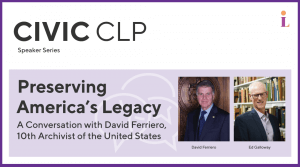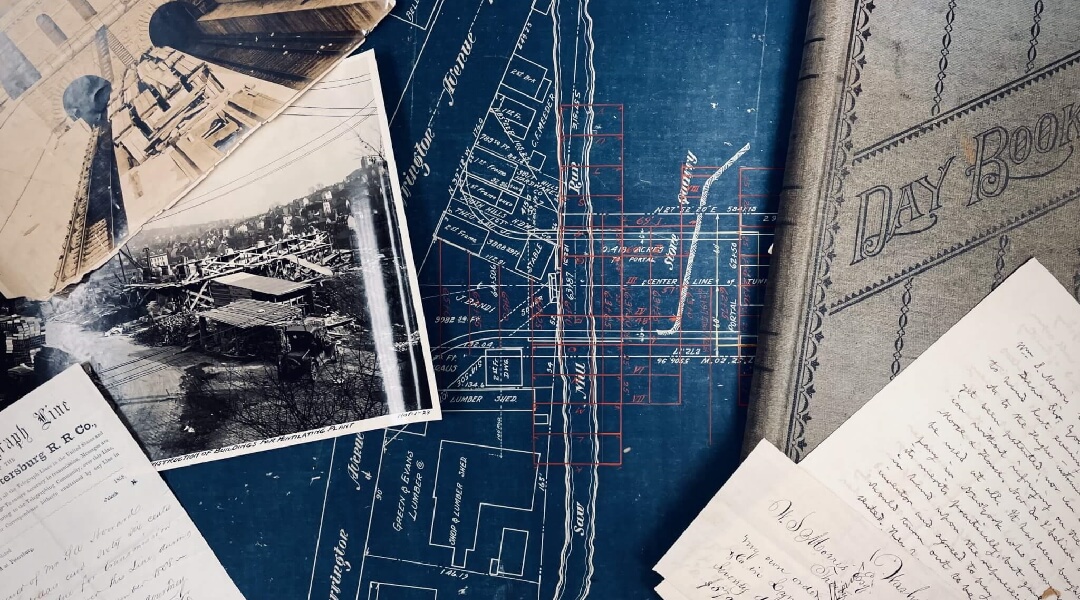October is American Archives Month, and we had the pleasure of welcoming David Ferriero, 10th Archivist of the United States (2009-2022).
As an introduction to American Archives Month and the National Archives & Records Administration, let’s answer the question: What is an archive?
An archive is a place to find information, mainly primary resources or firsthand information. There are national archives, state, city, community, religious, library, business, and many more types of archives. For example, do you have a box of letters and photographs from your great-grandmother? That’s an archive!
Archives are physical and digital items; personal, business, family, or group papers, photographs, scrapbooks, maps, oral histories, video recordings, reports, and more. Archives help preserve original materials that are intellectually valuable to us today. These resources provide vital and unique information about our nation, state, city, family, and more.
The National Archives and Records Administration (NARA) in Washington, D.C., is the largest archive in the United States. NARA is an independent federal agency of the U.S. government within the executive branch. They govern, preserve, and document the federal records and information policy for the executive branch and preserve and provide access to documents from the judicial and legislative branches.
NARA also provides access to over 150 million records online! Their mission is to ensure the documentation and preservation of our nation’s government records and provide public access to unclassified records and other resources documenting our nation’s history. One of the most prominent groups of records you can access through NARA is Census records from 1790 to 1950. Census records are used chiefly in genealogical research. Of course, we can’t forget America’s founding documents: the Declaration of Independence and the Bill of Rights!
NARA collaborates with several universities and colleges, such as Columbia, Harvard, Princeton, and Yale. Another collaboration is Founder’s Online, with the University of Virginia Press providing free access to the papers and letters of seven of the nation’s most influential founders: John Adams, Ben Franklin, Alexander Hamilton, John Jay, Thomas Jefferson, James Madison, and George Washington.
This post was to support the CivicCLP Speaker Series Preserving America’s Legacy: A Conversation with David Ferriero, 10th Archivist of the United States – Carnegie Library of Pittsburgh. The program recording can be found on YouTube.

Pittsburgh has a rich historical and archival community. You can find several archives right here in Oakland and at CLP-Main. To learn more about your local historical and archival community, check out https://carnegielibrary.libguides.com/Genealogy
More Information:
- National Archives
- Founders Online: Home (archives.gov)
- eBooks | National Archives using resources from the archives
- Introduction – Genealogy – CLP Library Guides at Carnegie Library of Pittsburgh (libguides.com)
Books

